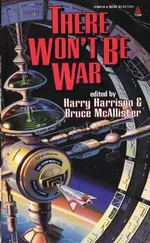Tom Burns - There It Is - Narratives of the Vietnam War
Здесь есть возможность читать онлайн «Tom Burns - There It Is - Narratives of the Vietnam War» — ознакомительный отрывок электронной книги совершенно бесплатно, а после прочтения отрывка купить полную версию. В некоторых случаях можно слушать аудио, скачать через торрент в формате fb2 и присутствует краткое содержание. Жанр: unrecognised, на английском языке. Описание произведения, (предисловие) а так же отзывы посетителей доступны на портале библиотеки ЛибКат.
- Название:There It Is: Narratives of the Vietnam War
- Автор:
- Жанр:
- Год:неизвестен
- ISBN:нет данных
- Рейтинг книги:5 / 5. Голосов: 1
-
Избранное:Добавить в избранное
- Отзывы:
-
Ваша оценка:
- 100
- 1
- 2
- 3
- 4
- 5
There It Is: Narratives of the Vietnam War: краткое содержание, описание и аннотация
Предлагаем к чтению аннотацию, описание, краткое содержание или предисловие (зависит от того, что написал сам автор книги «There It Is: Narratives of the Vietnam War»). Если вы не нашли необходимую информацию о книге — напишите в комментариях, мы постараемся отыскать её.
There It Is: Narratives of the Vietnam War — читать онлайн ознакомительный отрывок
Ниже представлен текст книги, разбитый по страницам. Система сохранения места последней прочитанной страницы, позволяет с удобством читать онлайн бесплатно книгу «There It Is: Narratives of the Vietnam War», без необходимости каждый раз заново искать на чём Вы остановились. Поставьте закладку, и сможете в любой момент перейти на страницу, на которой закончили чтение.
Интервал:
Закладка:
If the Landsdale-Pyle mystery will never be completely solved, it is likely that its origins have arisen, as Pratt suggests, from the legendary character of Landsdale’s “exploits in the Philippines and Vietnam after World War II [which] have provided not only historians but also journalists, novelists and filmmakers with material for their countless stories and myths.” 35That is to say, Landsdale’s exploits, not the man himself, may have served as any number of fictional models. Pratt, finally, neatly sums up both the inconclusiveness of the factual evidence and its ultimate insignificance when he comments that “given the outcome of the American presence in Vietnam, perhaps Landsdale should have been the model after all,” 36a recognition of Landsdale’s mythical, even metonymical presence in Vietnam for the Americans who came later. Decades after its publication, The Quiet American has continued to astonish readers with its prophetic vision of the disruptive American presence in Vietnam, which would only gradually be recorded in fiction and non-fiction by American writers. The “prescience” of the novel, as much as its artistry, has accordingly been celebrated by critics. 37
The principal narrative voice and the moral conscience of the novel is Thomas Fowler, a middle-aged English correspondent, who is rather burned out from personal disappointments in his past. Fowler has left his ex-wife, his lover, and England for the east, where he finds contentment in Saigon with his beautiful young Vietnamese mistress, Phuong, and the nightly opium pipes that she prepares for him. Disenchanted rather than cynical, Fowler is a basically decent man who feels at home in the country (he frequently explains the “situation” there to foreign visitors), but he chooses to think of himself as an uninvolved, apolitical observer of the war, a mere “reporter.” He has no desire for an imminent promotion to an editorship in England, where he might have to produce “opinion,” and to leave Vietnam. ‘“I’m not involved. Not involved,’ I repeated. It had been an article of my creed” (27). His eventual involvement becomes the moral and political crux of the novel.
Fowler befriends the newcomer Alden Pyle, an earnest son of a professor from strait-laced Boston, apparently eager, naïve, and idealistic, a young man of good intentions but little understanding. “With his gangly legs and crew-cut and wide campus gaze, he seemed incapable of harm” (16), Fowler observes. Pyle’s All-American boyishness seems out of place in the Euro-Asiatic culture of Saigon, once known as the “Paris of the Orient.” Rather, he “belonged to the skyscraper and the express elevator, the ice-cream and the dry Martinis, milk at lunch and the chicken sandwiches on the Merchant limited” (19). Although Pyle insists in his polite, well-meaning manner that he has learned a lot from Fowler, Fowler perceives that Pyle has his own priorities, moral and political, which no contrary knowledge may be allowed to disturb: “I had suffered from his lectures on the Far East,” Fowler complains, “which he had known for as many months as I had years” (10). Nor is Pyle, who seems to think in grand abstractions, much of a listener. “He didn’t even hear what I said: he was absorbed already in the dilemmas of Democracy and the responsibilities of the West: he was determined…to do good, not to any individual person, but to a country, a continent, a world” (17). Even after some harrowing experiences in the country, Pyle remains “impregnably armoured by his good intentions and his ignorance” (162).
Pyle’s manner and appearance, however, are deceptive. He pretends to work for a medical mission but is actually a CIA operative in charge of covert operations, and therefore far less innocent than Fowler imagines. The title of the novel, in one sense, refers to Pyle’s need for secrecy. Phuong is the first one to call him a “quiet American,” although evidently in a literal sense. With Pyle’s lack of French and her lack of English, he is unable to talk to her, but this quietness takes on a more sinister aspect when the reader later discovers that Pyle speaks fluent Vietnamese. Fowler personally likes Pyle for his quiet, respectful manner, so different from his loud and boorish compatriots, like the correspondent Granger, who gets stumbling drunk in public and sees any Vietnamese woman as “a piece of tail.” A more sympathetic character, Vigot, the French policeman who reads Pascal, says of Pyle after his death that he was “a very quiet American,” with the implication that his reserve was tactical rather than personal. With Fowler, however, Pyle is tediously loquacious, especially when expounding his political theories. He will become “quiet” only when terminally silenced by the Viet Minh, with the collaboration of Fowler himself.
Commentators have noted that Pyle and Fowler thematically represent the classic dichotomy of innocence and experience. The two men immediately find themselves in competition for the affection of the lovely Phuong, who is guided (“managed” is perhaps a more appropriate word) by her older sister, who, in the face of an uncertain future, wants her to have the financial security of a stable relationship with a foreigner. Before she met Fowler, Phuong worked as a hostess in a respectable dance-hall, and the threat of eventually slipping down into the desperate prostitution of the House of Five-Hundred Women, which survives on the trade of French soldiers, is a possibility that Pyle recognizes, and he claims that he wants to protect her. Angry at Pyle’s presumption, Fowler tells him that Phuong needs no protection because he is aware that her serene behavior does not quite disguise a hard-headed approach to her future prospects, including leaving him for Pyle. Her name, which means “Phoenix,” suggests that she will survive.
The problem for Fowler is that he can offer Phuong real affection and conversation (they speak French together) but only temporary security. Because his English wife will not grant him a divorce and because he may be recalled to England by his newspaper, a future with Phuong is doubly uncertain. Pyle, who falls in love with Phuong at first sight and is championed by the scheming older sister, thinks he can provide what Fowler lacks: youth, marriage, children, and a safe and stable future in the US. Because of the supposed language difficulty, however, his courtship of the lady comically depends on his rival. In his boy-scout-like ethical code, he feels that he must make his suit in a thoroughly above-board fashion, doing nothing behind Fowler’s back, which even includes asking Fowler to translate when he asks Phuong to leave Fowler for himself. Pyle’s first name, Alden, may be an allusion to—but a reversal of—the go-between role of John Alden, the favorite of the lady to whom he must plead the case for Miles Standish, in Longfellow’s narrative poem The Courtship of Miles Standish (1858).
Beyond the love triangle, the three main characters may also be read as representations of their respective cultures. 38Phuong, an oriental sexual fantasy for western white men (she is beautiful, quiet, and unobtrusive—“One always spoke of her like that in the third person as if she were not there” (44)—as well as sensual and pliant), I would suggest that she also represents the Vietnamese prize for competing western political projects. Fowler, in this reading, would be European colonialism, which wants to maintain possession. In one of their many arguments over the correct behavior of foreign powers in Vietnam, Fowler defends the French on the basis that they are “dying every day” in their colonial war, which at least removes empty abstractions from their policy: “I’d rather be an exploiter who fights for what he exploits, and dies with it” (94), Fowler says, sounding like the French characters in Lartéguy’s Yellow Fever. He tells Pyle about the harm that the British did to their allies in Burma with “phony liberalism” and the concern for maintaining a good conscience. In a dialogue that suggests Phuong’s symbolic role, Pyle says he has Phuong’s own “best interests” at heart, which irritates Fowler with its egotism and naiveté: “I don’t care about her interests…I’d rather ruin her and sleep with her than…look after her damned interests…If it’s only her interests you care about, for God’s sake leave Phuong alone” (58). The Old World colonialist only wishes to use Phuong—the country and its resources—for his own benefit. The New World moralist wants to save her from herself.
Читать дальшеИнтервал:
Закладка:
Похожие книги на «There It Is: Narratives of the Vietnam War»
Представляем Вашему вниманию похожие книги на «There It Is: Narratives of the Vietnam War» списком для выбора. Мы отобрали схожую по названию и смыслу литературу в надежде предоставить читателям больше вариантов отыскать новые, интересные, ещё непрочитанные произведения.
Обсуждение, отзывы о книге «There It Is: Narratives of the Vietnam War» и просто собственные мнения читателей. Оставьте ваши комментарии, напишите, что Вы думаете о произведении, его смысле или главных героях. Укажите что конкретно понравилось, а что нет, и почему Вы так считаете.












